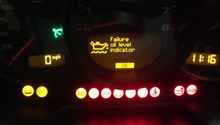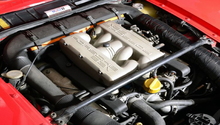Porsche 997: Why is My Car Misfiring?
When it comes to troubleshooting misfires, there is rarely a problem with so many possible causes. Here's a brief run through to get you started.
This article applies to the Porsche 911 997 (2005-2012).
It doesn't matter what kind of vehicle it is or how new it is; if it has an internal combustion engine, it can misfire. The problem with misfires is that the list of possible causes is extremely lengthy. This is due in part to the fact that there are so many different components that could be involved in causing a misfire. Some of these components could not even be the direct cause of the misfire but rather are in relation to another component that is the culprit. Whenever you have a misfire to troubleshoot, it is best to start with simple and cheap fixes first and then move onto the more expensive and difficult parts later. This can help you keep your sanity if you are trying to tackle this yourself.
Before diagnosing a misfire it is good to remember that patience is the only way through this. It might get frustrating at times but if you let it get to you, you'll never figure it out. If you decide to tackle this on your own, keep in mind that it is all about eliminating through various tests what seems to be good and bad. If you are having a shop tackle this troubleshooting, keep in mind that even the most experienced mechanics can have issues doing so, and it could be very likely that your set of issues could be something they've never seen before.
In addition, the first thing you should do is check to see if you have any check engine light codes, even if your check engine light is not on. This will help in figuring out if there is a problem with an associated component that is causing your misfire. To keep things as simple as possible, this article breaks down the possible issues by component. It is always good to remember that every internal combustion engine, no matter how complex, operates on fuel, air, and spark.
Fuel
The reason to start with fuel is because the fuel is something that is constantly being changed. As long as we are operating our cars, we are constantly putting in new fuel. If you happen to all of a sudden develop a random misfire, it is very likely that it could be the fuel itself or its delivery to your engine. It is even possible that the fuel source that you last used could have been contaminated, most likely with water. There are many fuel system cleaners out there that you can run through your fuel system. It's very simple just to run some reputable fuel system cleaner through a tank of new fuel and see if there is a change. It is very debatable as to which ones are good or not. A little bit of research will go a long way in this case.
Also, consider your car's fuel delivery system. Fuel injectors can become clogged over time or their o-rings can start to leak. If you have a specific code for a misfire on a specific cylinder, it will help to pinpoint that cylinder and possibly if a fuel injector is your cause of misfire. A common trick is to remove the injector from one cylinder and swap it onto another cylinder; if the misfire follows the injector, then it's time for new ones. If you haven't changed your fuel filter in a long time, also consider this as a possible cause. This would most likely be the case if the misfire is not on a specific cylinder.
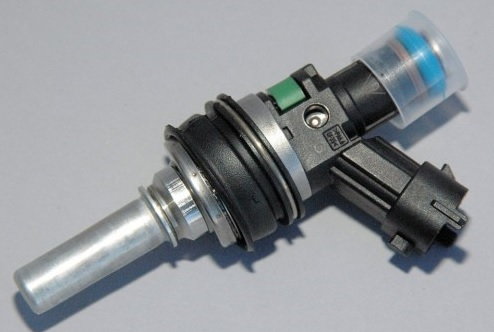
Air
Proper, metered air flow into your engine is required in order for it to operate correctly. If there is a problem that is causing airflow to be disturbed or enter the engine without being metered, then it can cause a misfire. With an air issue, it will most likely cause a random misfire on non-specific cylinders.
First, check to see if your Mass Air Flow sensor is working properly as well as if your air tract is connected from the air box all the way to the bottom of the manifold. There have been reports of misfires caused by the hose clamps coming loose on the intake plenum, which is the part that connects the throttle body to the intake manifold and diverts the air into each bank of cylinders, creating a vacuum leak. Any time air can enter the air tract after the MAF sensor, which is the engine's metering device, it can cause all kinds of operating problems for the engine and can even cause misfires.
The easiest place to start is by cleaning the MAF sensor and making sure it is working properly. After that you can just follow the flow of air into the engine to know which components to check after that. Keep in mind that some physical components, if not working correctly, will not pop a code or check engine light; however, they are associated with a component or sensor that will.

Spark or Ignition
When it comes to the ignition system and its components, if you happen to have a failure somewhere, it's going to cause a misfire. This will also most likely cause a misfire on a specific cylinder which sometimes makes the troubleshooting process a little easier. Where it gets tricky is that electricity is involved which, in the case of some people and their experience, can be quite frustrating.
Coil packs can very likely cause misfires. To check them you can swap them around to another cylinder and see if the misfire goes with the coil. Obviously, this only works if you are having a cylinder-specific misfire. Spark plugs can also cause misfires, especially if they are old or haven't been changed in a while.
Most new engines have various sensors that are associated with the ignition system and tell it when to fire. If one of these sensors malfunctions, it could possibly cause a misfire, so keep that in mind when troubleshooting them and remember that the ignition system on these engines is only as good as all the components that help it to operate.
Lastly, the ignition is controlled by computers. These computers can malfunction or fail over time. It is even possible that their software needs to be updated. Make sure to keep this in mind when considering possible causes of misfires.
Related Articles
- Porsche 997.1: How to Replace Spark Plugs - Rennlist.com
- Porsche 997.2: How to Replace Spark Plugs - Rennlist.com
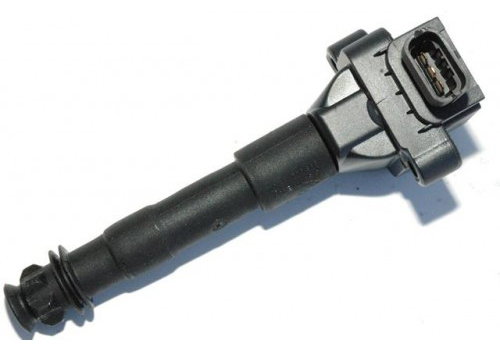
Engine Component Failure
So lets say you have checked everything related to fuel, air, and spark and are still getting a misfire. Don't forget that there could also be a problem with the actual engine itself.
Compression is also needed with the other three key sections in order for an engine to run properly. It's not impossible that the correct amount of compression is being obtained on a specific cylinder and this is causing a misfire. A lack of compression could be caused by a bent valve, broken valve spring, or even damaged piston rings. Without proper compression, an engine will never run correctly.
Unfortunately, the worse thing about a compression issue or other engine-related issue is usually that this is where it is going to be the most costly to fix. But if you have tried troubleshooting in all the other areas and are still generating a misfire, then it is likely that you might have to look at the engine itself.
While it is probably the most unlikely cause of most misfires, you can't rule it out. There have been people that have reported such components as dual mass flywheels, air oil separators, and even camshafts or lifters causing misfires due to vibrations and engine harmonics.
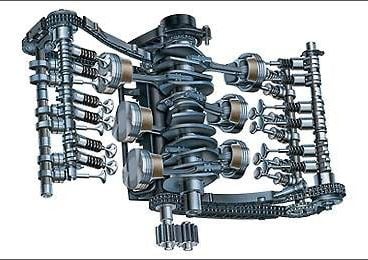
This is just a brief run-through of some misfire possibilities. You could probably write a whole entire book on misfires alone. The best thing you can do is simplify and start with the cheapest and easiest possible problems and work your way through each likely component until you find the issue.
Related Discussions
- Single Cylinder Misfire - Rennlist.com
- Random Misfire Issues - Rennlist.com
- No CEL, but Misfire - Rennlist.com

